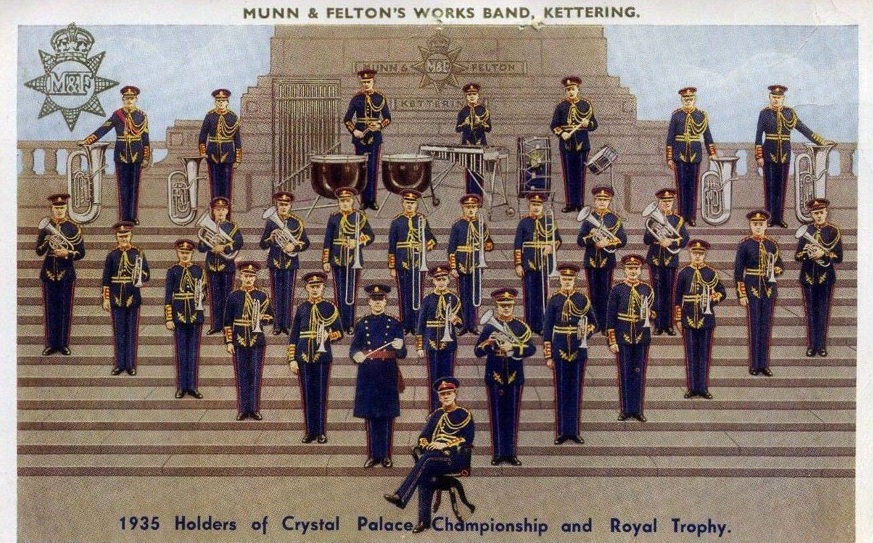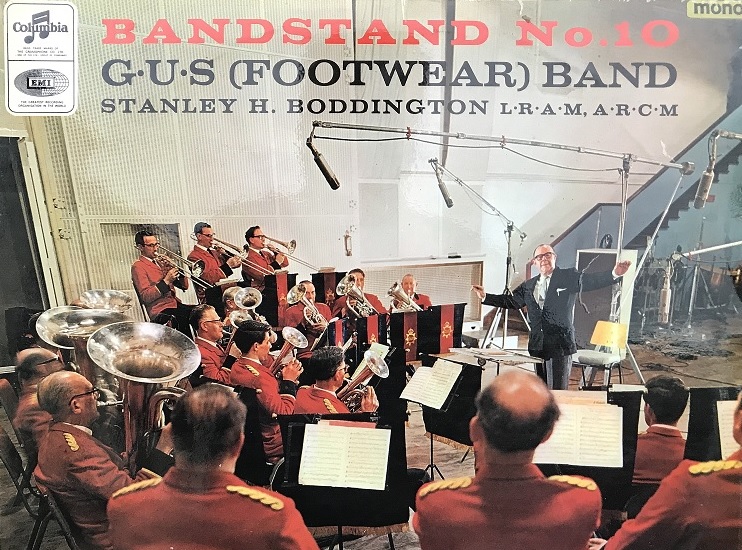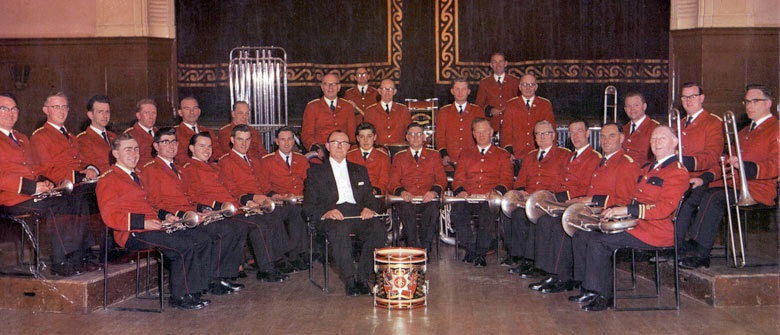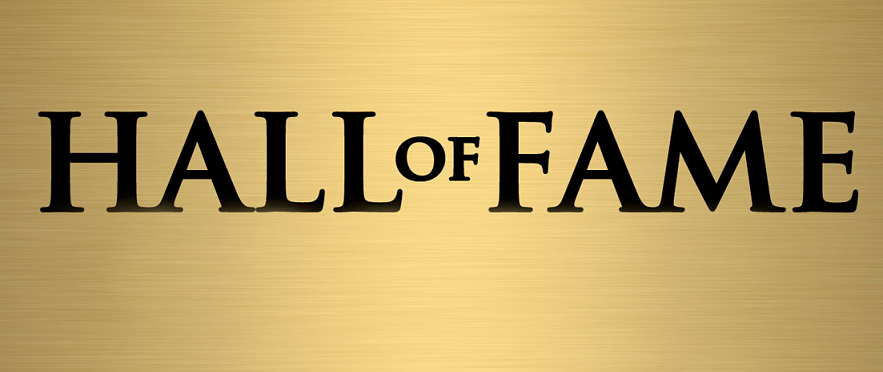
Brass band historian Tim Mutum has been asked by 4BR to curate a ‘Hall of Fame’ of players, conductors, composers, adjudicators, entrepreneurs, administrators and personalities who have helped to shape as well as drive the brass band movement from its beginning to the modern day.
Fame can be lasting and indelible or fleeting and ephemeral – from the names who appear on contest record rolls of honour to those who made contributions to greatness in other ways around the brass band globe.
Fame can be lasting and indelible or fleeting and ephemeral – from the names who appear on contest record rolls of honour to those who made contributions to greatness in other ways around the brass band globe.
The undisputed giants of Gladney, Rimmer and Mortimer will of course be included, but so too those who may not so readily be spoken of as ‘greats’ but whose contribution should without doubt be marked.
We hope you enjoy the series, which we also hope will be added to with further information about each person as we develop it further.
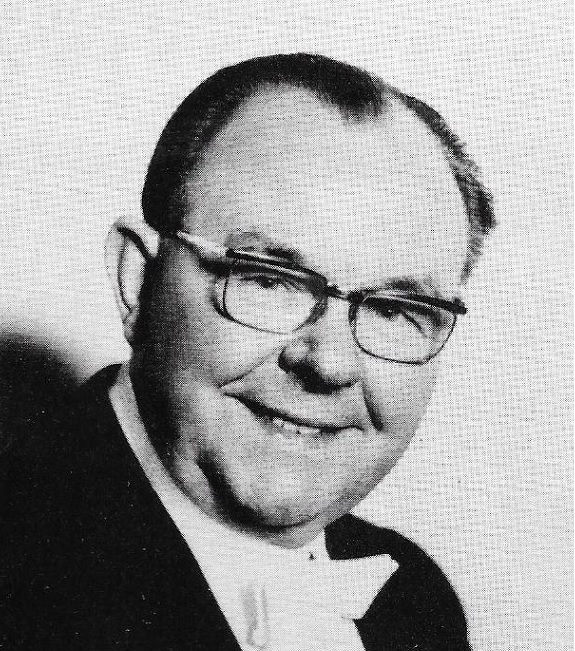
Stanley Boddington MBE (1905 – 1986)
Greatness can be bestowed on the shoulders of the most modest of men.
That was certainly the case with Stanley Herbert Boddington - although his achievements in the brass banding world were anything but.
Born in Wollaston, Northants in 1905, he was an unassuming and unpretentious man, yet as a musician, and a conductor in particular, he possessed gifts few of his contemporaries were blessed with.
Greatest
Bram Gay once called him “the greatest band trainer still alive”- and that was almost five years after he retired as Musical Director of the GUS Band (which he was associated with for 42 years) in 1975. Some years earlier the great Fred Mortimer referred to him as “the best bandmaster in England”.
His contest CV with the GUS Band included a World Championship victory in 1970, four National Championship titles (1957, 1960, 1964 and 1966) and a British Open success (1954). It spanned a first Midlands Area Championship win in 1946 and a last (his seventh) in 1969 amongst others.
His contest CV with the GUS Band included a World Championship victory in 1970, four National Championship titles (1957, 1960, 1964 and 1966) and a British Open success (1954). It spanned a first Midlands Area Championship win in 1946 and a last (his seventh) in 1969 amongst others.
All this and he also led Grimethorpe Colliery Band to second place at the 1978 European Championship (aged 73) and enjoyed success with the likes of Cambridge, BMC (Morris Motors), Ferodo Works and even Bideford Town - all with an avuncular smile that hid a steely resolve tempered in a furnace of learning forged by his connection to Harry Mortimer in his prime.
His last competitive appearance saw him lead Grimethorpe to the Yorkshire CISWO title in 1979. He bowed out on top of the podium - a position he held over 30 times in his long career.
Lacking ambition
Because of his rather parochial connection to one specific band, some accused him of lacking ambition. That was far from the truth.
Boddington certainly had no musical ego to feed (although he was said to have his idiosyncrasies).
He was a man happy with the fulfilment gained from his marriage at the age of 24 to his beloved Marjorie, and the secure working life offered in Kettering employed in various capacities at the Munn & Felton shoe factory - and with its band.
It was selfless commitment; first as a player, then bandmaster/resident conductor and ultimately Musical Director.
Scant reward
Over the next five decades it encompassed countless concerts, contests and tours, over 30 LP recordings and ground breaking associations with the likes of composer Gilbert Vinter. He led the GUS Band quartet to three consecutive National title wins – all on Vinter works from 1966-1968.
His award of the MBE in 1982 to services to music (as well as the Iles Medal in 1985) now seems like scant reward for such a singular career - one that started when he joined his local Salvation Army Band aged seven, before becoming a member the cornet section of the Kettering Citadel Band aged 17 (a quiet non-secular association he retained throughout his life).
His award of the MBE in 1982 to services to music (as well as the Iles Medal in 1985) now seems like scant reward for such a singular career
He quickly became an accomplished musician so when Fred Felton announced that he was to “form a band and we are going to aim high” in 1933, Stanley Boddington was soon recruited to its ranks.
Felton was also shrewd enough to appoint him as resident conductor - a decision that was to prove integral to the success that followed.
Master
Soon Boddington was learning under the baton of the great William Halliwell one of the conducting masters of the Edwardian era. He was part of the band that won the National title at Crystal Palace in 1935.
Although Munn & Felton struggled through the war years, peacetime brought commercial prosperity - and its band, able to offer generous employment to players, entered a golden period of success.
He was to learn much from Harry Mortimer, who later acknowledged the debt he owed him for the way in which the band was so well prepared for concerts, recordings and crucially, contests on which he led them - including his last National victory in 1955.
Boddington however had already shown his mettle at the helm at the majors - and in 1954 had led the band to a remarkable British Open victory from the number 1 draw on ‘Tournament for Brass’ (a feat yet to be emulated in the following 65 years).
Boddington however had already shown his mettle at the helm at the majors - and in 1954 had led the band to a remarkable British Open victory from the number 1 draw on ‘Tournament for Brass’ (a feat yet to be emulated in the following 65 years).
Musical authority
With Mortimer’s ‘retirement’, Boddington stamped his musical authority on the Kettering band - one that was hallmarked by further National success in 1957, 1960, 1964 and 1966, and the last World Championship title in 1971.
Arguably the band was the best in the world at that time - although a second British Open never quite materialised (much like Fred Mortimer he was no great fan of the noise generated by the fun fair attractions at Belle Vue, restricting his appearances at the contest after the win) he did come third on his final appearance in 1974.
At the Albert Hall it was a different story - culminating on the World Championship victory in 1971 on ‘Energy’.
For a conductor deemed by many of being an arch traditionalist, his appreciation of the mathematical complexities of Robert Simpson’s fearsome work was masterful.
One of the adjudicators that day described the winning performance as one that has “all joints cemented with musical glue”. It was perhaps the most commanding victory in the history of the short-lived event.
Some years earlier he had gained both the LRAM and ARCM diplomas - academic additions that he felt were essential to his understanding of the increasingly complex works that were being commissioned at major contests. He was also a talented arranger, with a number of popular works to his name.
For a conductor deemed by many of being an arch traditionalist, his appreciation of the mathematical complexities of Robert Simpson’s fearsome work was masterful.
Indian Summer
His retirement as Musical Director of GUS in 1975, following a concert at the famous Three Choirs Festival at Worcester Cathedral, was however marked by a degree of unhappiness, with his subsequent relationship somewhat distant.
He did not retire from the banding movement though - his Indian Summer coming a few years later with four contest appearances at the helm of Grimethorpe all resulting in podium finishes, and two appearances (over 20 years since his last appearance in the box) as an adjudicator at the 1977 and 1978 British Open.
In his later years he lived quietly in Kettering, a modest man blending into the community that he had brought so much musical pleasure to for well over half a century.
Stanley Boddington died on Christmas Day 1986.
His baton technique was superb, which was surely one reason why people always commented on the clarity of his performances. As a band trainer he had no peers
Following his death his former principal cornet player John Berryman remarked that "...his baton technique was superb, which was surely one reason why people always commented on the clarity of his performances. As a band trainer he had no peers.”
His memory and achievements at the National Championships of Great Britain has been marked since 1987 by the presentation of a trophy in his name to the winning conductor.
Tim Mutum
4BR Hall of Fame: No.1: Jack Atherton
https://www.4barsrest.com/articles/2019/1832.asp
4BR Hall of Fame: No.2: Albert Baile
https://www.4barsrest.com/articles/2019/1836.asp



